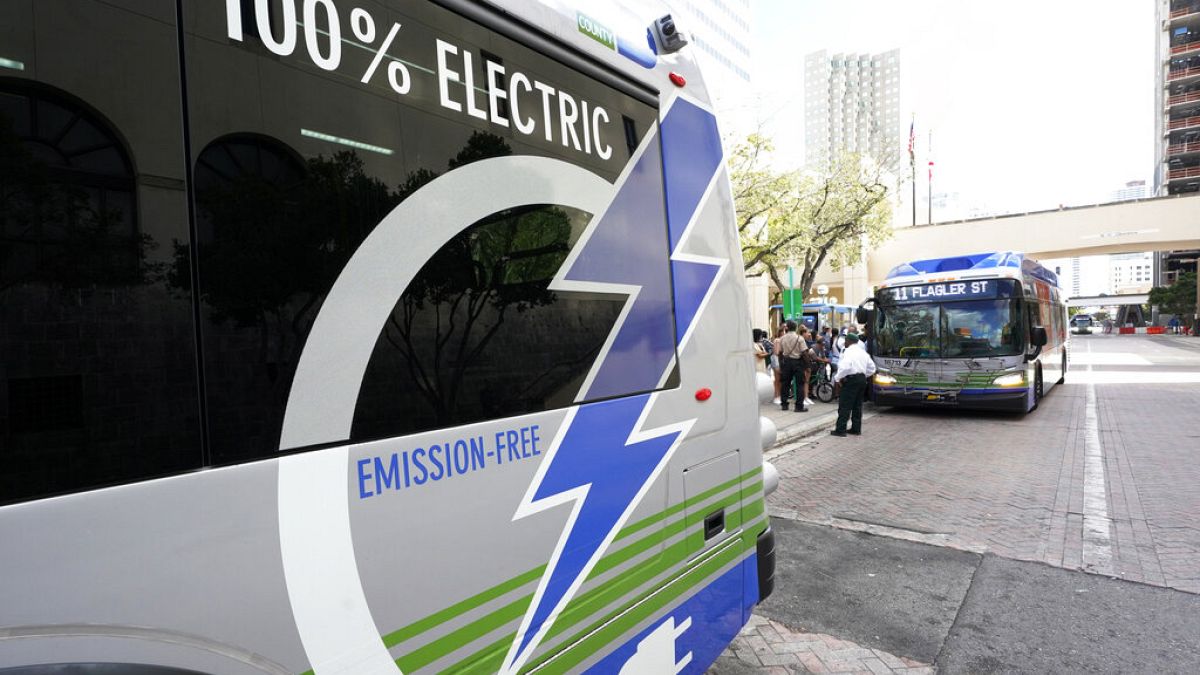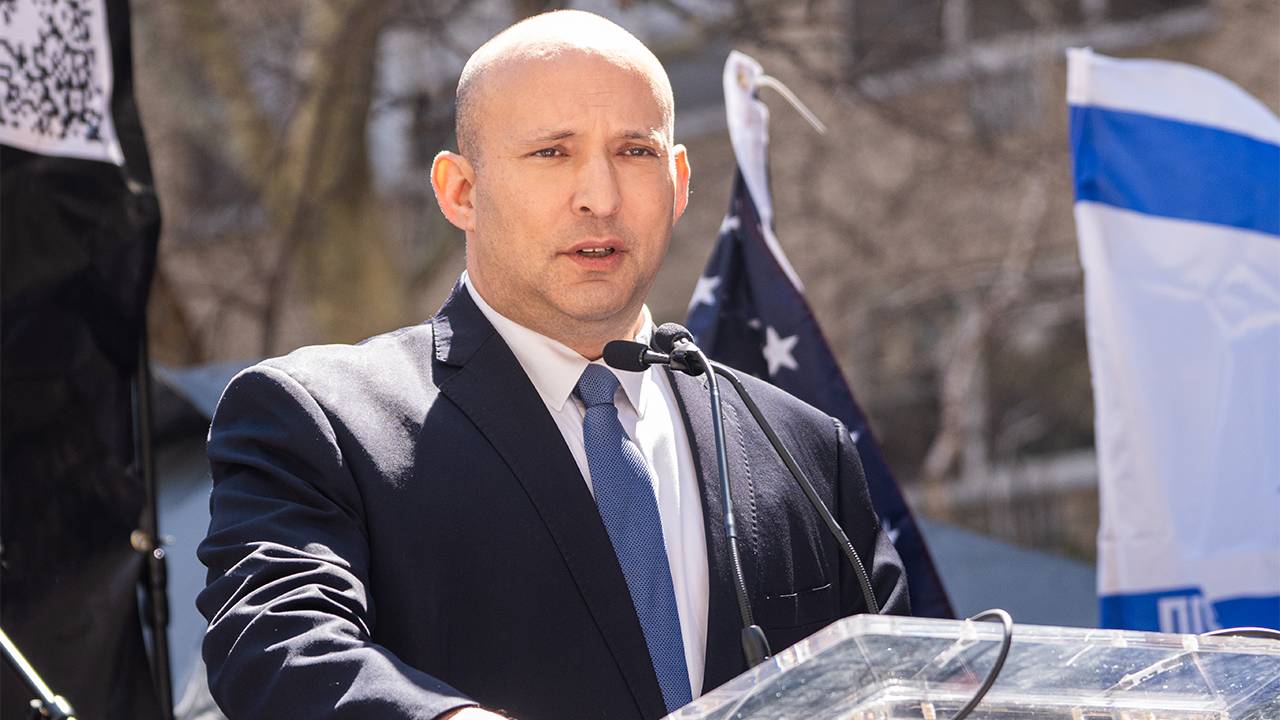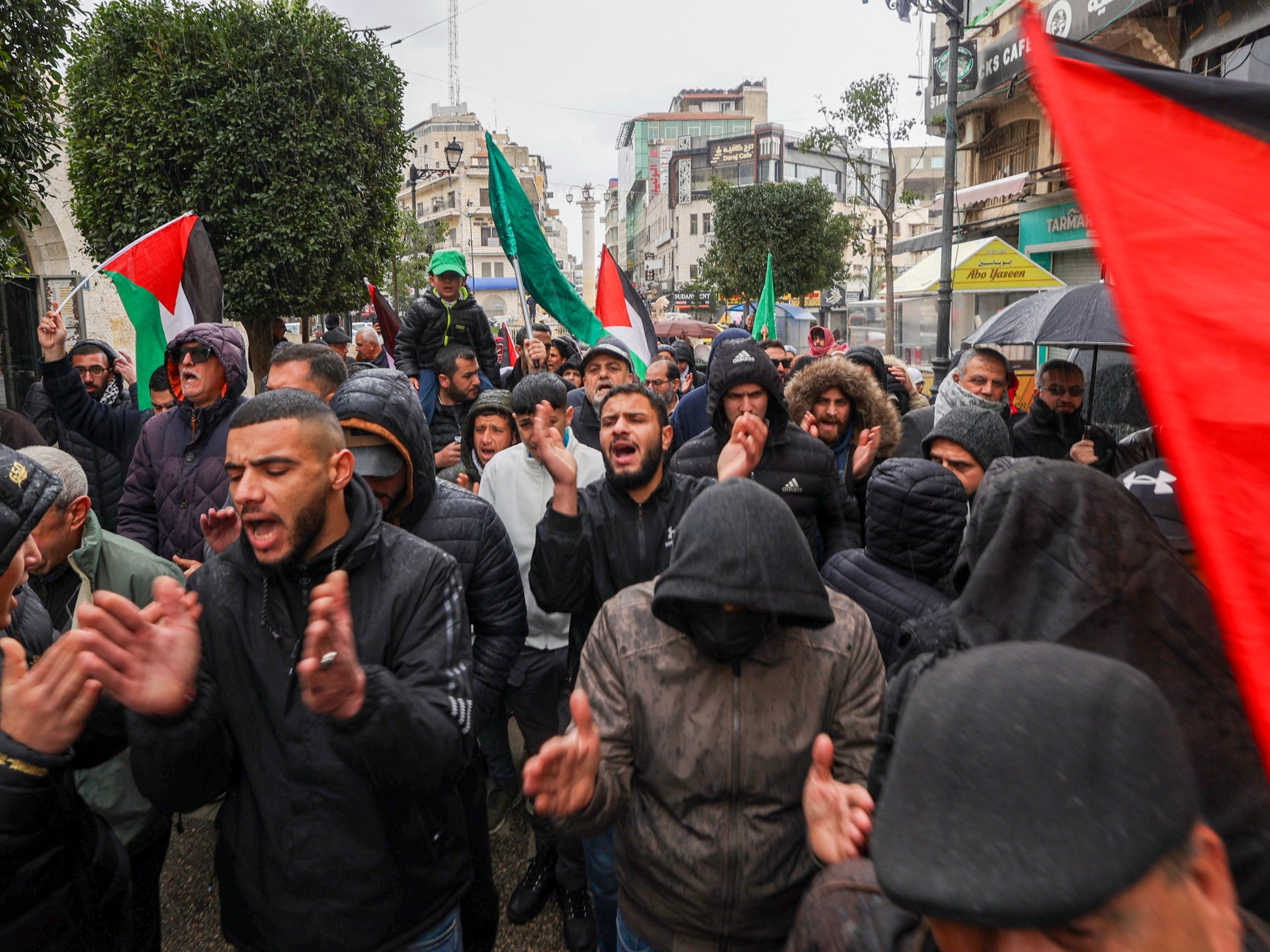World
Was Oslo paralysed after all electric buses broke down in the cold?

It’s been dubbed a “green failure”… Multiple social media users and certain tabloids have been sharing the news that Oslo’s new fleet of electric buses has all stopped working due to freezing temperatures. But what really happened?
Is Oslo, one of the world’s leading green cities in terms of emissions, currently at a standstill because all of its electric buses have broken down?
Let’s take a look.
Allegedly, cold weather in Norway is severely affecting the vehicles’ range and battery life, according to multiple social media users and international tabloids.
“The cold has paralysed the new electric bus fleet in Oslo. That’s millions just sitting idle due to -7 to -14 Celcius temperature,” tweeted one account.
“Another electric bus failure. They can’t run below -11C! 320 buses taken out of commission,” quipped another user.
Other articles claimed more than 140 bus departures have been affected in the Scandinavian capital daily since the start of December.
Many online used the alleged incident to criticise Norway’s goal to move away from diesel and petrol engines in the next two years.
What happened? The situation is less dramatic than on social media
Euronews reached out to Ruter, the company that operates the electric buses in Oslo.
In an email, a spokesperson called the allegations “an extreme exaggeration…We cancelled, on average, between 50 and 100 departures, out of more than 4,000 daily departures, for a few days.”
The company did however admit they had a few “challenges with the range of the buses being shorter in cold weather.”
“We solved this by changing the charging shifts. And also by fixing the charging infrastructure.”
Ruter claims the issues have since been fixed and the fleet of electric buses continues to run as usual.
Why are electric vehicles impacted by the cold weather?
Cold weather impacts both the range of an electric vehicle (EV) – how far it can travel on a single charge – and also the charging time.
“Every single engine system whether it’s a battery or living beings like humans, doesn’t function well in the cold. Internal combustion engines also have trouble being cranked at low temperatures,” explained Anna Stefanopoulou, professor of mechanical engineering at the University of Michigan.
This problem is not only specific to cars. You’ve probably noticed how fast a phone or laptop loses power in the cold.
The colder the temperature, the slower the reactions in the batteries needed to generate power.
According to Anna Stefanopoulou, at -12 Celsius, a parked EV can lose up to 30-40% of its range before it even starts its route.
About two-thirds of the extra energy consumed is used just to heat the inside of the car so it’s comfortable for the driver and passengers.
Electric vehicles are more efficient than gas engines which means they can’t draw on heat produced by the motor to warm the inside of the car.
They have to generate heat in other ways, hence using more energy from the battery which means losing in range.
Is it realistic to operate a fleet of electric buses in countries like Norway?
Although the cold does reduce an EV’s range and charging speed, Professor Stefanopoulou believes it’s all a matter of organisation and planning.
“The buses need to stay plugged in, if possible, early on, before they start the route and stay plugged in overnight. When you do that, the battery can start and operate at this maximum range.”
“Then the transit authorities have to either adjust their routes and notify passengers or equip the bus with diesel heaters for these few cold months to make up for the 30% loss in range if they want to maintain a full schedule and their usual routes,” explained the battery expert.
But installing diesel engines means going against the zero-emission goal the city of Oslo is striving to achieve by 2024 for all of its public transportation.
Anna Stefanopoulou does admit that the solution is not black and white: “Getting fully decarbonised is not easy and we are working hard on it. But I do think we need to be aware of the improvements while understanding the shortcomings.”
“I think this will help us avoid creating adverse publicity against the big effort we are currently putting into electrification,” she said.

World
Protesters block New Caledonia roads as French police pour in

World
Ex-Israeli PM calls for defunding ICC after court requests arrest warrant for Netanyahu over ‘war crimes’

Former Israeli Prime Minister Naftali Bennett on Monday called for “decent nations” to defund the International Criminal Court (ICC) after a court prosecutor filed applications for arrest warrants against Israeli Prime Minister Benjamin Netanyahu, Defense Minister Yoav Gallant and Hamas leaders for alleged “war crimes.”
Prosecutor Karim Khan said his office had collected evidence to give “reasonable grounds” to believe Netanyahu and Gallant “bear criminal responsibility for… war crimes and crimes against humanity committed on the territory of the State of Palestine.”
Khan said those alleged crimes include “starvation of civilians as a method of warfare” and “intentionally directing attacks against a civilian population.”
He said he is also seeking arrest warrants for Hamas leader Yahya Sinwar, its top political leader Ismail Haniyeh, and its military commander Mohammed Deif.
AMAL CLOONEY PLAYED KEY ROLE IN ICC ARREST WARRANTS FOR NETANYAHU, HAMAS LEADERS
Former Prime Minister of Israel Naftali Bennett speaks at the “Bring Them Home” rally in support of Israeli hostages outside the UN Headquarters on April 07, 2024 in New York City. (Noam Galai/Getty Images)
Bennet said the prosecutor’s request was “a moment of shame for the ICC and the world community” and provided “a huge boost to global Jihadi terror.”
“An ICC that compares the executor of a deliberate murderous attack that included raping women and burning babies, with those who are defending themselves against it, is better off not existing,” Bennett said. “It’s time for the decent nations to defund the ICC.”
He included the hashtag: “DefundTheICC.”
Netanyahu and other Israeli leaders condemned the move as disgraceful and antisemitic. U.S. President Joe Biden also lambasted the prosecutor and supported Israel’s right to defend itself against Hamas.
A panel of three judges will decide whether to issue the arrest warrants and allow a case to proceed. The judges typically take two months to make such decisions.
Israel is not a member of the court, so even if the arrest warrants are issued, Netanyahu and Gallant do not face any immediate risk of prosecution. But the threat of arrest could make it difficult for the Israeli leaders to travel abroad.
Fox News Digital’s Greg Norman and The Associated Press contributed to this report.
World
‘Lone wolf’ or JI?: Jemaah Islamiyah confusion after Malaysia attack

Medan, Indonesia – Malaysia has been the target of a rare deadly attack after a man armed with a machete struck a police station in southern Johor state, killing two police officers and injuring a third.
Initially, Malaysian police said they suspected Friday’s incident was linked to the hardline group Jemaah Islamiyah (JI) and was probably an attempt to steal weapons. Speaking to the media after the attack in the town of Ulu Tiram, Inspector General of Police Razarudin Husain said police raided the suspect’s house and discovered “JI-related paraphernalia”.
Five members of his family were arrested, including the suspect’s 62-year-old father, who police said was a “known JI member”. Two other people, who were in the police station making a report at the time of the attack in the early hours of Friday morning, were also detained.
But on Saturday, Malaysia’s Minister of Home Affairs Saifuddin Nasution Ismail appeared to backtrack on the JI connection, describing the attacker as a “lone wolf” who was “driven by certain motivations based on his own understanding because he rarely mixed with others”.
Former members of JI in Indonesia told Al Jazeera that an attack by the group on Malaysian soil seemed unlikely.
Speaking from prison in Indonesia’s capital Jakarta, where he is serving a life sentence for his role in JI’s 2002 Bali bombing, which killed more than 200 people, Ali Imron told Al Jazeera that JI’s profile in Malaysia did not seem to fit the police station attack.
“There have never been any JI members in Malaysia who agreed to commit acts of violence like this,” he said. “Before the Bali bombing, there were attacks in Malaysia, but these were committed not by JI but Kumpulan Mujahidin Malaysia [KMM].”
KMM, a hardline group linked to JI, carried out small-scale attacks in Malaysia in the early 2000s.
Rueben Dass, a senior analyst at the S Rajaratnam School of International Studies in Singapore, noted that JI had never previously mounted attacks in Malaysia.
“Malaysia was always considered an economic region for JI, not the focus of attacks,” he told Al Jazeera. “The Malaysian authorities were always vigilant and aware, particularly after KMM became active. They have been on their toes and carried out a wave of arrests in the early 2000s of JI members.”
Since then, he said, JI had maintained a low profile.
“To see them coming up again is a little surprising,” he added.
Indonesia, which saw a spate of JI attacks in the late 1990s and early 2000s – including attacks on churches on Christmas Eve 2000, the Bali bombings and the 2003 attack on Jakarta’s JW Marriott Hotel – has also been largely successful in clamping down.
In 2003, with funding and training from the United States and Australia, it established the Counterterrorism Special Detachment 88 (Densus 88), and later set up a National Counterterrorism Agency (BNPT).
Indonesian authorities have also pioneered a range of deradicalisation programmes, using former members of hardline groups including JI, with recidivism rates at about 11 percent, according to the Institute for Policy Analysis of Conflict, a Jakarta-based think tank.
History of JI
JI was founded by Indonesian Muslim scholar Abu Bakar Bashir and Abdullah Sungkar in 1993, with a mission to establish an Islamic caliphate across Southeast Asia.
The group has historically been linked to al-Qaeda, from which it reportedly received funding and training in the 1990s and early 2000s. It has had members in Indonesia, Malaysia, Singapore, Cambodia and the Philippines.
JI was officially banned in Indonesia in 2007, leading to the group splintering. Some members focused on dakwah or proselytisation, while others continued to plot violent attacks. Arrests have continued across the region with members accused of stockpiling weapons and bomb-making equipment.
According to open source data, between 2021 and 2023, out of 610 people arrested In Indonesia, 42 percent were JI and 39 percent were from other hardline groups – including Jamaah Ansharut Daulah (JAD) and other pro-Islamic State groups.
The majority of JI senior figures have been either executed, shot dead in police raids or jailed.
Both Bashir and Sungkar lived in Malaysia in the 1980s and 1990s, in addition to senior members such as Indonesian Encep Nurjaman (alias Hambali) and Malaysians Noordin Mohammed Top and Azahari Husin. Ali Ghufron (alias Mukhlas), Amrozi bin Nurhasyim and Imam Samudra, the masterminds of the Bali bombing, also spent time in Malaysia.
Hambali was arrested in Thailand in 2003 and is currently awaiting trial at Guantanamo Bay in Cuba, while Samudra, Amrozi and Mukhlas were executed in 2008. The two Malaysians were shot in separate police raids in Indonesia in 2005 and 2009.
Before his death, Noordin ran the Luqmanul Hakiem Islamic boarding school in Malaysia, which was founded by Bashir and Sungkar and was in Ulu Tiram, close to the home of the suspect of Friday’s attack.
Malaysia closed the school in 2002 amid suspicions it was being used to recruit people to JI.
Style of attack
While the profile of the suspect’s father, and the proximity to Luqmanul Hakiem, might have suggested a JI connection, Imron cautioned against such an analysis.
“If the son followed his father, there is no way he would have committed this act, so there is a strong possibility that he was inspired by ISIS [ISIL],” Imron said, suggesting the Malaysian authorities had “jumped to that conclusion.”
Umar Patek, who was released from prison in 2022 after serving 11 years of a 20-year sentence for mixing some of the chemicals used in the Bali Bombing, told Al Jazeera that he “did not believe” that the attacker was a member of JI and agreed that the attack appeared to have the hallmarks of another group.
“I am very doubtful,” he said. “I don’t understand it, especially carrying out a violent attack. It is impossible in my view that it was JI, but it is possible that it was ISIS.”
The style of the attack has added to the scepticism, as the targeting of a police station and Muslim police officers is inconsistent with JI’s attacks in Indonesia. There, it has been ISIL-inspired hardline groups, including JAD, that have attacked police stations, seeing them as representative of the state.

Judith Jacob, the head of Asia for the risk analysis and intelligence company Torchlight, told Al Jazeera that the most unusual aspect of Friday’s attack was the location.
“While Malaysian militants have been key figures in JI and Philippine-based groups, there are few indications of sophisticated plots targeting Malaysia specifically in recent years,” she said.
However, while Malaysia and Indonesia have not seen anything like the levels of violence of the early 2000s, attacks have not been completely eradicated – with a pattern of more opportunistic and low-level violence emerging.
“The attack in Malaysia remains squarely within the wheelhouse of regional Islamist militant groups – that is to say, it is a relatively unsophisticated assault,” Jacob said.
“Indonesian groups, in particular, have been largely unable to conduct the large-scale attacks or coordinated bombings that were a hallmark of JI in its heyday in the 2000s. Militant groups in the Philippines are more capable, but they too have been unable to conduct sophisticated bombings beyond the southern islands.”
-

 News1 week ago
News1 week agoSkeletal remains found almost 40 years ago identified as woman who disappeared in 1968
-

 Movie Reviews1 week ago
Movie Reviews1 week ago“Kingdom of the Planet of the Apes”: Disney's New Kingdom is Far From Magical (Movie Review)
-

 World1 week ago
World1 week agoIndia Lok Sabha election 2024 Phase 4: Who votes and what’s at stake?
-

 World1 week ago
World1 week agoUkraine’s military chief admits ‘difficult situation’ in Kharkiv region
-

 Politics1 week ago
Politics1 week agoTales from the trail: The blue states Trump eyes to turn red in November
-

 World1 week ago
World1 week agoBorrell: Spain, Ireland and others could recognise Palestine on 21 May
-

 World1 week ago
World1 week agoCatalans vote in crucial regional election for the separatist movement
-

 Politics1 week ago
Politics1 week agoNorth Dakota gov, former presidential candidate Doug Burgum front and center at Trump New Jersey rally
















